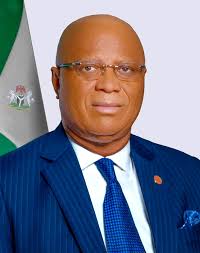By; PATRICK TITUS, Uyo The Akwa Ibom State Government has developed a strategy to eliminate challenges against the attainment of Water Sanitat
By; PATRICK TITUS, Uyo
The Akwa Ibom State Government has developed a strategy to eliminate challenges against the attainment of Water Sanitation and Hygiene (WASH) and Open Defecation Free (ODF) roadmap by 2030.
These challenges as identified, include limited access to sanitation facilities, poor hygiene policies, inadequate infrastructure, limited funding and resources, low private sector participation and traditional beliefs as well as difficult terrain especially in coastal parts of the state.
At the end of a just concluded two-day maiden Water, Sanitation and Hygiene (WASH) training workshop in Uyo that drew participants from 31 local government areas of state, a draft of State Action Plan (SAP) was developed with positions expected to guide government efforts in improving WASH sector essential for reducing the risk of waterborne diseases and promoting overall public health.
The workshop, was organized by the State’s Ministry of Water Resources and Sanitation with the theme “WASH Sector: Strengthening the LGAs Towards Achieving Sustainable Development Goals.”
This follows the recent State’s Executive Council approval of the WASH major documents which include Monitoring and Evaluation Framework as well as Open Defecation Free Roadmap for the State
In his addressing during the workshop, the Commissioner for Water Resources and Sanitation, Mr. Ubuo Ubuo, noted that the recently ratified documents in addition to the Akwa Ibom State Water Resources Sector Management and Regulation Law 2022, were crucial for the reforms in the WASH sector in terms of governance and infrastructure provisions.
NAF Warns Against Fake 2025 Recruitment MessagesUbuo said the documents provided roles and responsibilities, created and established structures at state, local and community levels among other provisions for effective management of WASH activities in the state.
He noted that, “The ARISE agenda of the present administration emphasises the importance of improving access to basic services, including water and sanitation, saying that the workshop is designed to equip Local Government leaders and stakeholders with the knowledge, skills and tools necessary to strengthen their WASH governance and service delivery.”
According to Mr Ubuo, the documents would ultimately contribute to the achievement of Sustainable Development Goals (SDGs), especially SDG 6- Clean Water and Sanitation.
“By prioritising people, participation and accountability, we can ensure that our WASH initiatives are responsive to community needs, inclusive and sustainable.
“I am confident that this workshop will be a significant milestone in our journey towards revitalising the WASH sector in Akwa Ibom State. I look forward to seeing the outcomes of our deliberations and working together to implement the State Action Plan that will emerge from the workshop,” he stressed.
In his keynote address, the Head of the Civil Service, Elder Effiong Essien, acknowledged the importance of effective WASH governance in the LGAs.
Towards Achievements, Essien advocated for “a demand-driven bottom-up approach, community-led total sanitation, capacity building, partnerships and collaborations, monitoring and evaluation, and decentralisation as key implementation strategies.
The Executive Director and Chief Executive Officer (CEO) Africa Human Development Centre (AHDC), Prof. Gabriel Umoh lauded the state government for yielding to several years of campaigns and advocacies for the implementation of the policy.
He commended the media and other WASH sector stakeholders for being at the forefront in driving the campaigns towards the desired action by government.
New Nigerian can also report that the state government has adopted a strategy where every development project has WASH component embedded. This means that, all the newly constructed and rehabilitated schools, health centers and markets have WASH facilities in them.




COMMENTS